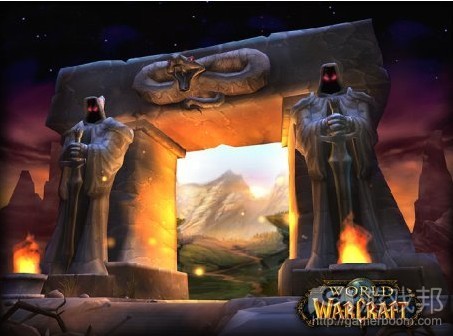阐述病毒式传播功能支持的游戏设计
作者:Tony
我之前曾一直思考病毒式传播功能。病毒式传播功能为何如此重要?病毒式传播功能是社交网络的核心要素,社交网络是推动游戏创收的新平台。首先要说明的是此话题有两个切入点:
* 病毒式传播功能推动的游戏设计
* 病毒式传播功能支持的游戏设计
目前我们看到的应用大多是病毒式传播功能推动类型。蓬勃发展的游戏大多依靠病毒式传播功能,利用口头传播。体验这些游戏就好比发送连环信件,虽然进行此活动会让你略有愧疚感,但其魅力令人难以抵挡。其呈现玩家能够容忍的游戏设计,其中有许多宝贵经验值得借鉴。
病毒式传播推动的游戏设计:
* 链接促使玩家能够成功创建更大“好友”圈
* 定期指导玩家邀请好友
这是你设计病毒式传播游戏应该顾及的内容。上述两点并未说明如何完成这些任务,但俗话说得好,细节决定成败。
病毒式传播推动型游戏设计师(游戏邦注:其或许不是设计师)通常不考虑玩家感受。玩家被视作是机器人,若游戏提供诱人奖励,吸引玩家眼球,通常想法是玩家会将其收入囊中,即便内心不想这么做。焦点团体访谈结果显示,很多社交网络玩家都借助此类解决办法:当系统提示邀请好友,他们会选择最不常联系的朋友(他们知之甚少,或毫不关心的朋友)。若情况如此,我们创建的就不是玩家联系密切的稳固社区,是吧?
社交网络玩家的流失率相当惊人。
最重要的就是创建玩家愿意参与其中共同体验游戏的社交网络,那么网络本身就会成为促进重复体验的因素。看到目前主导社交网络的“游戏”,我的心里很不是滋味。其实这些游戏毫无趣味可言,它们不过是连接至奖励分配对象的销售电话机,一旦玩家发现这点,他们就不会重返游戏。
病毒式传播支持的游戏设计
那么什么是病毒式传播游戏?首先,它们应同其他游戏存在共同性,因为它们也是游戏。体验游戏是种回馈活动,我们不应欺骗玩家,给他们微不足道的好处,这样玩家才会回访游戏(游戏邦注:回访游戏,就能获得免费游戏货币;邀请好友就能获得更好道具,这原本需耗费一周才能获得)。
应让玩家觉得他们是同真正好友共同体验游戏,而非只是共存于同个游戏世界(这是真正的互动!)。很多游戏只是玩家炫耀成就的工具,瞧,我创造自己的虚拟宠物伙伴。真替你高兴。我或许会因此也制作自己的虚拟宠物,4礼拜后,我们就不再关心此内容。我们很难让玩家同时登陆社交网络,但这该致使我们有所懈怠,而是应该促使我们积极创造优质内容。
那么病毒式传播如何支持游戏设置:
* 竞争
* 合作
竞争
挑战好友——若玩家只同自己认识和喜欢的人玩游戏,那么其享受其中的几率更大,会邀请更多“真正”好友共同体验。关注好友存在的问题是,你和好友很难同时登陆。解决方案不局限于借助异步玩法,但若不采用此方案,你需让玩家同好友同时登陆社交网络。异步玩法能够挖掘的内容远比目前多得多。另一选择就是促使玩家结交新朋友,推动社交互动,让常客相互关注,深入了解(游戏邦注:如公会和好友列表)。
比较积分——瞄准特定族群利益,促使好友之间进行积分比较的游戏能够通过竞争模式推动病毒式传播。若你喜欢琐碎任务,那么你会选择能够天天提供琐碎任务的应用。若你选择琐碎任务类型游戏,同好友进行积分比较,游戏就会变得更具个人色彩,玩家会更愿意同好友分享游戏。
合作
不妨参考猜字游戏。先设想你独自体验,再想想同好友共同进行。哪种情况你更可能完成任务?哪种情况你会收获更多乐趣?玩家同好友合作完成字谜难题的应用是典型的“病毒式传播支持”游戏:融入好友游戏会变得更加有趣,所以玩家会想要邀请好友。这个构思还能延伸出更多功能,拓展社区范围,创造成就感,但游戏体验需既简单,又有趣。
深层合作
最终某个身处社交网络领域的人士将注意到《魔兽世界》。然后所有社交网络领域人士都会发现《魔兽》。或许这样说更好:最终社交网络领域人士会发现《魔兽世界》的魔力所在,开始借鉴其模式。
《魔兽世界》完全关乎团队合作,而团队合作趣味横生。很多玩《魔兽世界》的人都愿意同素不相识的人合作,只是为了进行合作体验。游戏持续发展,不断添加新内容,你体验到引人入胜的仿真内容,完全足以替代现实抱负。是否有休闲游戏让玩家能同系列好友共同合作应对复杂挑战?还没有,大家应该着手朝此方向发展。
病毒式游戏还有很多有待探索的内容,我不认为社交网络已经形成稳定模式,但从很多方面来看,病毒式传播游戏是行业未来的发展方向。游戏是一种互动形式,而社交网络是最新互动领域,所以若二者能够完美结合,定能够取得突出成就。(本文为游戏邦/gamerboom.com编译,如需转载请联系:游戏邦)
Virality-supported design
I spent a lot of time at my last job thinking about virality. What makes virality important? Virality is the key to social networks, and social networks are a huge new opportunity to make money off of games.
The first thing to establish is that there are two ways to look at the topic:
* Virality-led design
* Virality-supported design
Currently, what we are seeing is virality-led design flooding the market. The games that blow up big are the games that put their virality forward and force it down the user’s throat. Playing these games feels a lot like sending out chain-letters; you feel guilty for doing it, but yet you find it hard to resist. It’s a testament to the design, that people put up with these games at all, and there are some great lessons to be learned.
Lessons learned from virality-led design:
* Link increased opportunities for user success to a larger ‘friend’ network
* Regularly direct users to opportunities to invite friends
These are both things you should do, when designing a viral game. The thing is, these two bullet points don’t say how to do these things, and, as they say, the devil is in the details.
All too often the virality-led designer (who is probably not a game designer at all) makes no effort to address the user’s feelings. The user is perceived as some kind of automaton and if the game can dangle a juicy-enough reward in front of him and force his attention to it often enough, the thought is he will bite for it, even if he doesn’t want to.
In my experience, focus group interviews have shown that many social network gamers have found a way around this: when prompted to invite a contact, they pick their most ‘fringe’ contacts –the people they hardly know and hardly care about. If this is the case, we’re not exactly building a solid community of tightly-connected gamers, are we?
As you might expect, the drop-off rate of social network gamers is horrible.
The whole point is to create a network of people you like playing games with, so that the network itself will become a draw towards repeat play. When I see the ‘games’ that currently dominate the social network sites, it makes my head hurt. The fact is, these games are not fun; they’re a telemarketer’s phone hooked up to a sugar-cube dispenser and once the user realizes this, he’s not coming back.
Virality-supported design
Ok so what should viral games look like? Foremost, they should look like any other games because, really, they should be games. Playing a game is a reward in and of itself –we shouldn’t need to give the user cheap cheats and advantages in order encourage repeat play (hey, come back to the game and I’ll give you free in-game currency; invite a friend and I’ll give you a better item that would ordinarily take a week to earn).
The players should also feel like they are playing with their real friends and not just coexisting in the same world (real interaction!). Too many of these games are just tools to show off individual accomplishments –look, I created my own little virtual-pet buddy! Good for you; I might be compelled to make one of my own, but four weeks from now, neither of us is going to care anymore. It may be difficult to get any two people logged in on a social network at the same moment, but that’s no excuse for lazy design, its just more incentive to make the games that much better!
So how can virality support gameplay:
* Competition
* Cooperation
Competition
Challenge your friends – If the user is only playing with people he knows and enjoys, there is a better chance he will enjoy the experience and invite more *real* friends to play. The problem with focusing on friends is that, odds are, you and your friends won’t be logged on simultaneously. The solution doesn’t need to be asynchronous gameplay, but if it isn’t, you’d better have a plan for how to get two friends logged on to the same social network at the same time. A lot more can be done with asynchronous gameplay than what we are seeing now. The other option is enabling users to make new friends -facilitate socialization and let regulars flag each other for later dates (guilds, buddy lists, etc).
Compare scores – Games that target specific user interests and then let users compare scores with friends drive virality through competition. If you like trivia, you might play an app that offers you a new set of trivia every day. If you can choose the trivia topics and compare scores with your friends, the game suddenly becomes much more personal and much more likely to get shared with close friends.
Cooperation
Imagine a crossword. Imagine doing that crossword alone, now imagine doing it with a friend. In which case are you more likely to finish? In which case are you more likely to have fun? An app that allows you to fill out a crossword puzzle with a friend is a perfect example of ‘virality-supported’: the game is more fun with a friend, so the user wants to invite a friend. More features can be layered upon this core to broaden the community and build a sense of progress, but the game experience itself needs to be simple and fun.
Deeper cooperation
Eventually, someone in the social networking space is going to notice world of warcraft. Ok, so everyone in the social networking space has probably noticed warcraft. Maybe it would be better to say: Eventually someone in the social networking space, who understands what makes warcraft compelling, will adopt that model.
World of warcraft is all about teamwork and the thing is, teamwork is fun. Most people playing warcraft are willing to team up with people they don’t even know, just for the experience of teamwork. Add in a never-ending ladder of stat-padding progress, and you’ve got a simulation so engrossing that it replaces real-life aspirations. A casual game where players can team up with a few friends for a few minutes to tackle a complex challenge? Shit, people would actually set their schedules around that.
I don’t have all the answers to viral gaming –not even close- and I don’t believe social networks have yet settled into a stable form, but in many ways, this is the future of gaming. Games are a form of interaction and social networks are the newest place to interact, so if we play nice, we can grow together.(Source:ventrice)









































 闽公网安备35020302001549号
闽公网安备35020302001549号